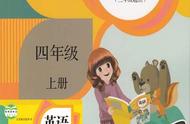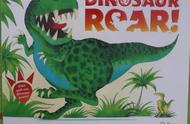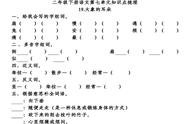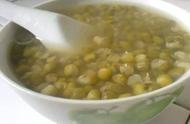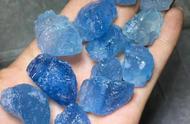提供小学语数英全套视频教程,私聊关注哦
Unit 1
句型
(1)询问人
----- Who's your math teacher ? ----- Miss Zhao . 你们的数学老师是谁。是赵老师。
-----Who's that woman ? -----She is my mother . 那个妇女是谁? 她是我妈妈。
(2)询问人的外貌特征
-----What 's he like ? ----- He 's tall and strong . 他长什么样子? 他很高很健壮。
----- Is she very old ? -----No ,she is very young .
-----Is he very short ? -----No, she isn't . She is very tall .
(3) 询问人的性格特点
----- Is she very quiet ? ----- No ,she isn't. She 's very active .
她很文静吗? 不,她很活跃。
----- Is she very strict ? ----- Yes , she is . But she is very kind.
她很严厉吗? 是的。 但是她很和蔼。
语法:
1、以字母 y结尾的名词变复数,如果字母 y的前面是元音(a, e , i, o, u),就在 y后面直接加 s。
如:boy—boys. 如果字母 y 前面是辅音,则把 y 变为 i, 再加 es. 如:lady—ladies city—
cities story--stories.
2、动词的第三人称单数:(所谓第三人称单数,就是指既不是你也不是我的另外一个人,可以是
具体的人名,他,她,或它,也可以是称呼类,如my mother, my friend 等。当一个句子中的人
物是第三人称单数,并且这个句子又是一般现在时态时,该句子中的动词要使用第三人称单数形
式。)
2
have—has like—likes do—does go—goes watch--watches
3、词语变化:fun(形容词形式)――funny funny(名词形式)――fun know(同音词)――no
he(宾格形式)---him
反义词:tall—short long—short young—old new—old strong—thin fat—thin
kind—strict active—quiet
4、be like 与 do like: 在本单元中,What's …like?的句型是主句型,这里的 like 是"像…一
样"的意思. What's …like?是问某某长得什么样子,同学们千万别和 like 的另一个意思"喜欢"
相混了。它的答语一般用:He/She/ It is…(后面跟描写人的外貌特征的词语),如:What's your
father like?你爸爸长得什么样子?。而在 do like 的句子中,like 的意思才是"喜欢"的意思。如:
What does your father like? 你爸爸喜欢什么?
Unit 2
句型
1.本单单元重点学习怎样问星期及怎样回答。
今天是星期几? What day is it today?
今天是星期一。 It's Monday.
2.问星期的某天常干什么事及回答。
你星期六常干什么? What do you often do on Saturday?
我常做家庭作业. I often do homework.
你们星期三常上些什么课? What do you have on Wednesday?
我们上语文、数学和英语. We have Chinese math and English.
3. What about you? 那你呢? (用于来问别人同样的问题而又不重复前面的问句。)
4. John likes Mondays and Fridays, because he likes P.E.
语法:
3
1、当询问别人喜欢哪些课程时,classes 应当用复数形式,因为别人喜欢的课程可能不止一门。
What classes do you like? 你喜欢哪门课程?
2、表示星期几的七个单词,开头第一个字母都要大写。其简写形式为前三个字母加点。
week 星期,周。(一周包括七天)
How many days are there in a week? There are 7.一个星期有几天?七天。
Weekend 周末(包括周六和周日)
How many days are there in a weekend? There are 2.一个周末有几天? 2天。
在英语国家中,一个星期的第一天是星期天 Sunday. The first day of a week is Sunday.
3、当介词 in, on ,at 后面跟表示时间的词语时,表示在某年或某月(当只有年和月的时候),用 in.
如 in May 在五月。In 1988,在 1988 年。表示在某段时间,如在上午,下午,晚上也用 in.如 in
the morning, in the afternoon, in the evening. 表示在某日,在星期几时,用on。如on Monday,
on Sunday . 表示在几点几分,在具体时间时,用 at. 如 at 6:30, at 9 o'clock.
4、近义词:often(经常)—usually(常常,通常)
5、play with 和…在一起,with 后面常用人称代词的宾格形式。 如:I can play ping-pong with
you.我可以和你一起打乒乓球。
6. I like Mondays. John likes Sundays. 这里的 likes是 like的三单形式,在一般现在时的句子中,
如果主语是第三人称单数,注意动词要变成三单形式。
7、Today is Sunday. I like Sundays. 在这个句子中,前一个星期日 Sunday 是特指"今天是星期
一",所以用单数形式,而后一个星期日 Sundays 是泛指所有的星期日,所以用复数形式。
Unit 3
所涉及的重点句型:
1.-------- What would you like for breakfast/lunch/dinner? (你中餐想吃什么)
-------- I'd like (some)…
4
2.-------- What do you have for breakfast/ lunch/ dinner…(时间)? (你… 吃什么)
-------- I have …
3.-------- What does… have …? ( 第三人称 …… 吃什么?)
-------- He/ She has …
4.-------- What's your favourite food/fruit? (你最喜欢的食物/水果是什么?)
-------- I like …(best). It's / They're …
-------- What about you? ( 你呢? )
5.-------- Do you like …? ( 你喜欢……吗?)
Yes, I do. No, I don't.
--- Does … like …?
Yes, she/he does. No, she/ he doesn't.
-------- Me too. -------- I don't like … They're/ It's…
6.That sounds good. 听起来不错
Unit 4
本单元的重点是动词短语及情态动词 can 的用法
sweep the floor 扫地
cook the meals 做饭
clean the bedroom 打扫卧室
water the flowers 浇花
empty the trash 倒垃圾
wash the clothes 洗衣服
set the table 摆饭桌;摆餐具
make the bed 铺床
5
do the dishes 洗碗碟
put away the clothes 收拾衣服
use a computer 使用计算机
do housework 做家务
at home 在家
能够灵活运用的有关句型
1. -------What can you/he/I do ? 你/他/我能做什么?
------ I /He/You can …. 我/他/你能….
2 . ----- Can you/I/ he …? 你/我/他能…吗?
----- Yes, I/you/he can. 是的,我/你/他能。
----- No(sorry) , I can't . 不,我不能。
But I 'd like to have a try. 但是我想试一下。
语法(Can 的用法)
结构:主语 can 动词原形。主语没有人称和数的变化。".表示能…"
如: I can sweep the floor. 我能扫地。
You can sweep the floor. 你能扫地。
He can sweep the floor. 他能扫地。
They can sweep the floor. 他们能扫地。
陈述句肯定式:主语 can 动词原形。
如: I can cook the meals. 我会做饭。
陈述句否定式:主语 can not 动词原形。
如: I can not / can't cook the meals. 我不会做饭。
6
句式: 一般疑问式及回答: Can 主语 动词原形?
如:---- Can you cook the meals? 你会做饭吗?
----Yes, I can./ No, I can't. 会,我会。/不,我不会。
特殊疑问式: What can 主语 do?
如: What can you do? 你会做什么?
Unit 5
1. 句型
—— What is your room like ?
—— There are /There is …
I have …
3 介词
① On 在…上, 在…旁, 在…时候, 关于…
1.There is a book on the desk.. 桌上有一本书。
2. The school is on the right. 学校在右边。
3. On the 1st of October, I'm going on a trip. 在十月一号,我要去旅行。
4. I'll buy a magazine on plant. 我要去买一本有关于植物的杂志。
( 表示"关于" 时,相当于"about")
② in 在…的里面
My book is in my bag. 我的书在书包里面。
③ under 在下面
The football is under the chair . 足球在椅子下面。
④ near 在附近
The trash bin is near the desk . 垃圾桶在桌子旁边。
7
⑤ behind 在下面
The cat is behind the door . 小猫在门后面。
⑥ over 在上面 只在某个物体的正上方,不与物体接触
(on 指在某个物体的上面,和物体接触。)
The bridge (桥) is over the river .
⑦ in front of 在前方 in the front of 在前部
eg: The teacher is in front of the students . 老师在学生的前面。
The teacher is in the front of the classroom . 老师在教室的前部。
There is a big tree in front of the house . 房子前面有一颗大树。
Unit 6
重要句型和语法点
1.询问在某处是否有……,用句子 Is there…? Are there any…?
回答时要用 Yes/ No, there….
Is there a lake in the park? 公园里有个湖吗?
Yes, there is. / No, there isn't. 是的, 有. / 不,没有.
Are there any lakes in the park?
Yes, there are. / No, there aren't.
2.There be 句型与 have/has 的区别.
There be 表示在某地存在有某物.There is / are 其过去式为 There was/ were
a /an 可数名词单数
There is (was) 地点(in/on /under/ in front of ..)
8
Some/ much 不可数名词
There are(were) 名词的复数形式 地点.
have/ has 用于表达某人拥有某物.
I have three pens and she has only one pen.
3. some和 any 的区别.
some用于肯定陈述句中. There is some drink in the fridge.
any 用于否定句和疑问句中. Is there any drink in the fridge?
No, there isn't any drink in the fridge.
第五六单元
1.There be 句型包括 There is a …后面跟名词单数,表示一个。例如:There is a mirror on the
wall. There are some/many…后面跟名词复数,表示多个。例如: There are two end tables
near the bed.
2. on 与 over 的区别
on: 在。。。上面,表示与下面的物体相互接触,紧挨着。
over: 在。。。上面,表示与下面的物体没有接触,悬空着。
3. 一些特殊疑问词的意义与用法:
1) what 什么,叫什么,干什么等。例如: What's this? 这是什么? What's your name?
你的名字是什么? What's your father like? 你爸爸长得什么样子? What's your mother?
*妈是干什么的?
9
2)where 哪里,用来问在什么地方,如Where are you? 你来自哪里? Where is your ruler?
尺子在哪里呢?
3)who 谁。 用来问人物是谁? 如Who's that man? 那个男人是谁?
4)whose 谁的,用来问东西是谁的。如: Whose book is this ? 这是谁的书?
5) what time 什么时间,用来问具体的时间是几点?
6)what coulor 什么颜色,用来问物体是什么颜色的。
7)when 什么时候, 用来问时间,后面常跟动词。 如: When do you get up?
8) how 怎么样?用来问人的身体状况。 如:How are you? 你好吗?
9)howmany 多少。用来问物体的数量。 如: Howmany books do you have? 你有多少本
书?
10)how much 多少钱。用来问商品或者物体的价格。如:How much is your schoolbag?
11) which 哪一个,用来问具体的哪一个。如: Which class do you like best?你最喜欢哪一门
课程?
7. 以系动词(am, is, are)和助动词(can, do)等开头的句子叫做一般疑问句。
如: Is your sister a teacher? Yes, she is. / No, she isn't.
Are you a student? Yes, I am. / No, I'm not.
Do you have new teachers? Yes, we do. / No, we don't.
Does Amy have new teachers? Yes, she does./ No, she doesn't.
Can you wash the clothes? Yes, I can. / No, I can't.
,

